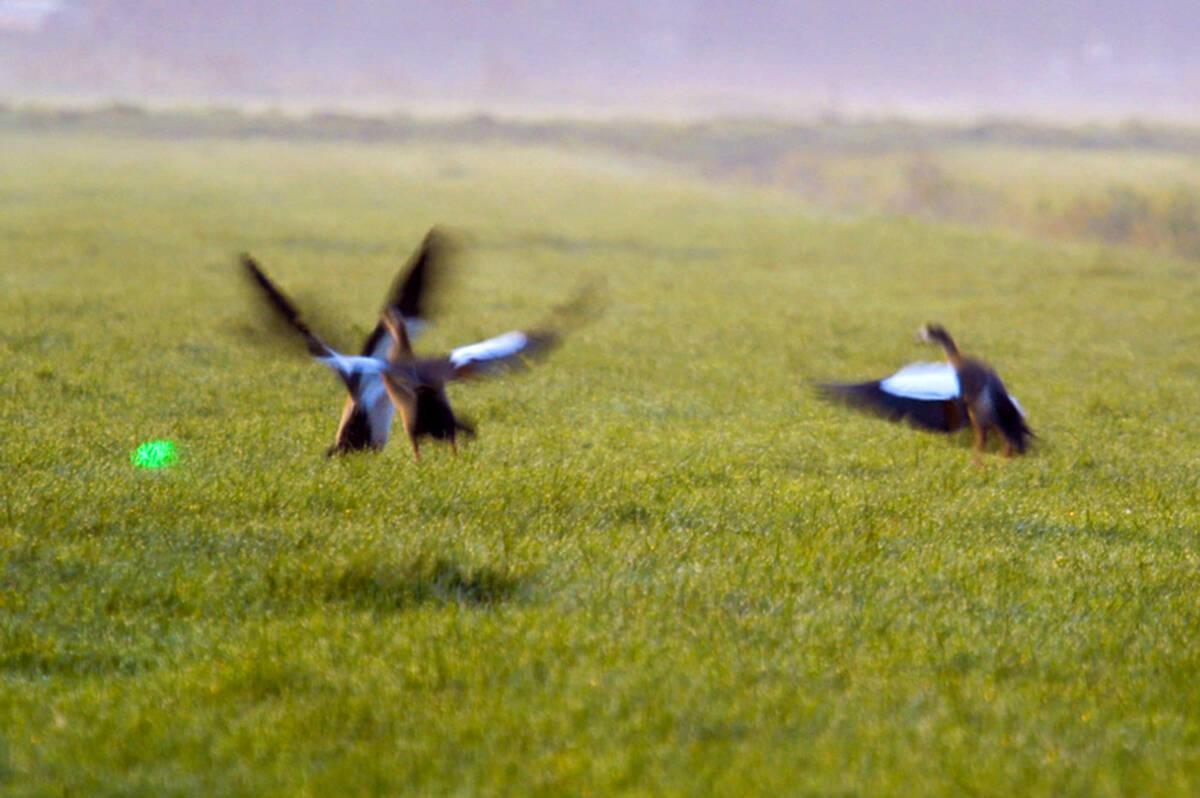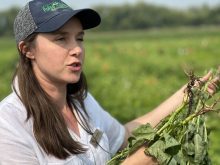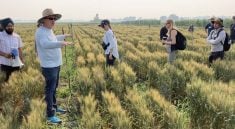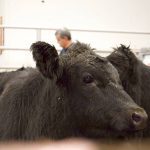Andrea Swain and Jeff Cottes have good educations, secure jobs and a home in Winnipeg.
They also have a dream: to leave the city and start a small market garden, living a simpler life so one can stay home with their two young children.
The pair have their eye on a piece of property near Beausejour, where Andrea grew up.
They’ve started looking for land since taking a course offered through the Organic Food Council of Manitoba (OFCM) aimed at helping people like Swain and Cottes take their dream to reality.
Read Also

Canada’s import ban on Avix bird control system ruffles feathers
Canadian producers’ access to Bird Control Group’s Avix laser system remains blocked despite efficacy studies and certifications, as avian flu deaths rise.
“This helped us answer questions that we didn’t even know we had and that we should be asking,” Swain said. “This really confirmed that we want some of our income to come from a farm business.”
Swain was one of 17 to enrol this winter in Exploring Your Small Farm Dream, a four-week course offered through OFCM’s Manitoba Farm Mentorship Program.
The course, developed by the New England Small Farm Institute, helps those thinking about small-scale commercial farming explore what it would actually take to start and manage a farm business. This winter was the first time it was offered in Manitoba.
Participants are challenged with the question, “Is Starting an Agricultural Business Right for Me?” The exercise encourages them to think about and document core values motivating them as well as creating an inventory of skills, and available land and capital to take the idea beyond talk.
“Most of the questions (the course) asked are personal in nature, ” said Clint Cavers, Exploring course instructor and a Pilot Mound-area farmer.
“We’ve tried to outline some of the challenges they’re going to face, by asking them what skills and resources they have, and what’s in their family or partner’s family for skills and knowledge. Basically this is asking them ‘what are you going to need to make this work?’”
Karlah Rudolph, a Gull Lake, Saskatchewan farm girl, is pursuing a masters degree at the University of Manitoba’s department of environment and geography but she’s eager to return to her parents’ 4,500-acre farm in southwestern Saskatchewan. She found this course helped her zero in on what she wants to do with it.
Her sister is interested in running a local restaurant serving locally raised food, she said. Rudolph herself plans to return to the farm after her studies and start raising pastured poultry and other livestock.
Rudolph said she’s lucky to have family encouraging her to do this.
More often people are discouraged about pursuing farm life, she said. “I feel very fortunate in that I have very supportive parents.”
Swain and Cottes, on the other hand, have been told to forget it. Remarks they’ve heard are, “we grew up on these poor farms” and “we worked hard to get to the city and have lives that don’t involve a farm,” she said.
But a stint living in a small town near Ottawa while Jeff finished his degree convinced them they’d rather live rurally, Swain said. “We just loved the small rural community lifestyle.”
Sharon Taylor, co-ordinator of the mentorship program, said the program continues this year and is witnessing a jump in both those keen to sign on as interns as well as farmers willing to mentor participants.
For more information log on to http://organicfoodcouncil.org/lorraine@

















